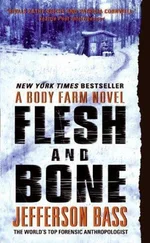The brick passage squeezed past a coal store and kitchen building and then widened as we approached a colonnaded walkway that extended right and left and all the way around the broad green garth beyond it. The walkway’s tiles had been laid in intricate coiled patterns like those on Aurellian urns and doorposts, with the trilliot, the three-petaled lily of Navronne, tucked into its loops here and there, alongside the golden sunbursts reminding us of the One God’s glory.
Gildas laid a finger on his lips. I had not actually noticed the bustle of kitchen and bakehouse, the whacks and grunts of the wood choppers, or the complaints of distant sheep as we walked from the infirmary…not until we stepped into the cloisters of Gillarine and all such common sounds dropped away. The place was so quiet, I could almost hear my own blood flowing.
We crossed the cloister walk and paused at the edge of a vast square of healthy green. The garth was bounded on four sides by the slender columns and graceful roof arches of the cloister walks, and dominated by the church’s vaulted roof and slender towers, directly across from us. To our left loomed the unadorned bulk of the lay brothers’ reach. On our right, a round-domed structure with lancet windows of colored glass and a number of other fine buildings with many windows crowded the cloister walk. And in the center of the garth stood a shrine, its interlocked arches of delicate stonework looking very like a large birdcage.
Few monks were abroad. One sat reading on a narrow bench enclosed on three sides, one of forty or fifty such carrels tucked under the cloister by the church. Another hooded brother halted and bowed before passing into the shrine beneath a stone lintel supported by two lithe stone angels who had somewhere lost their wings. He quickly reappeared, a copper ewer in his hand.
Gildas pointed toward the shrine and stepped onto the cobbled path that led across the grass. I dutifully followed…
Darkness engulfed me. I staggered sideways, limbs quivering, joints turned to jelly. Weak…sick…gasping…starved for air and sound, as well as light. Gods of mercy, what have I done that I should be struck blind? Guilt and horror, the surety of death and vengeance wrung my neck like a hangman’s noose, while remnants of old sins chased each other through my conscience like brightly colored birds, only to be swallowed in the blackness.
And then, as quickly as the night had fallen, all was consumed by light, as if the unsullied sun of summers past shot its beams straight into my eye sockets. As an avenging angel come down from heaven, the light swept away terror and in its place left a bright and sharp-edged tenderness that wrenched my heart. I cried out and stumbled backward.
A sharp crack on my skull brought the world—the green garth, the shrine, the cloister walk, the dull morning light—into focus again. I gulped air into my starved lungs. A cherubic rump protruded from the low arch where I had whacked my head. I spat on my middle finger, slapped the little aingerou, and prayed its friendly spirit to protect me from collapsing or exploding. No battle wound or shock had ever afflicted me so precipitously.
Brother Gildas’s gaze flicked from my face, to the serene enclosure, to my hand that now gripped the carved sprite as if seeking only its structural support. I half expected his lip to curl and his mellow voice to denounce me immediately as a heathen blasphemer. But he merely gripped my waist securely and assisted me back into the alley, looking a bit puzzled.
“Perhaps we’ve overdone,” he said when we were outside the cloister bounds again. “And you with an unbroken fast. Can I help?”
The world was so bright. So sharp. I pressed my head to the cool stone of the refectory wall and drew a ragged breath. “A drink of something…ale…or wine…please.”
Anything to dull the glare that yet vibrated behind my eyes like a fresh knife wound, to soothe the ache that throbbed in my chest as if I had lost my last friend or heard the last song ever to be sung.
Gildas pried me from the wall and assisted me down the alley, through a wooden gate and a muddy herb garden, and into the steams and smokes of the abbey’s kitchen. Two lay brothers, half obscured behind hanging baskets and vermin safes, stood at two long tables, trimming or chopping vegetables—turnips, garlic, carrots, and leeks—while a wizened, stoop-shouldered monk worked alongside them, grinding herbs with mortar and pestle. A slight figure in a layman’s hooded cloak of brick red deposited a flat, covered basket on one of the tables and retreated toward a far door.
“Thank you, Squire Corin,” called a ruddy-faced, leather-pated monk who stirred an iron vat hung over the great central hearth. “We’ll hope poor Gram finds more appetite at supper. Brother Cellarer will send better wine for your master.”
“Jerome!” my companion called across the stone-floored vastness.
“What can I do for you, Brother Gildas?” said the ruddy-faced monk as he emptied a wooden bowl of chopped cabbage into his pot. With the efficiency of long practice, he set the cavernous bowl aside, snatched a long-handled spoon from a rack on the soot-blackened wall, and poked at the cabbage that sizzled and spattered in his pot.
“Have you a bit of something mild and sustaining for our newest aspirant?” said Gildas, steadying me as I sank onto a pine bench beside the door. “I fear I’ve overtaxed him on his first excursion from the infirmary.”
Brother Jerome spun around, his wooden spoon raised as if it were a hierarch’s crozier, ready to assert his holy authority in this domain. “The supplicant who brought the Cartamandua maps?”
The whole world seemed to stop and stare just then, even the departing layman, who paused in the half-open doorway across the room and lifted his red hood slightly as if to see me better.
“Aye, the same. Still recovering from his injuries and unfed this day. My misjudgment.” Gildas returned his sober scrutiny to me. “And I beg forgiveness for that,” he said quietly. “Unworthy of me to assume…uh…that your strength was greater than you showed.”
I waved off his concern. My leg and back had contributed naught to my weakness that I could judge. Yet if I told Gildas what I had experienced, surely nothing good would come of it. The monks would call it a sign of Iero’s displeasure, pile on penances or rituals to reform me, and likely send me away. If some god or spirit or magical being did live within that garth, it must—
The likely truth stung my skull like a pebble from a sling. The shrine…the font…the murdered Brother Horach! Some people said that spirits loosed in savage torment would linger in the place of death, become revenants. Had I somehow invoked his wrath…or his benevolence? The contrary nature of the encounter left it open to myriad interpretations.
The world moved on again. The monks were back to chopping and grinding. The beardless servant vanished through the door. Forgoing fruitless speculation, I breathed deep, pleased to smell the garlic and to feel the steam that hissed from the wilted cabbage as Brother Jerome tossed aside his spoon and emptied a crock of liquid into his pot.
Brother Gildas filled a wooden cup from a nearby barrel. I drained it before his hand had moved away. Lovely ale, new made, not old. “Iero’s grace,” I said, and he brought me another.
“I’ve a barley loaf and syfling cheese will suit a fragile constitution,” said Brother Jerome, once he had tamed his soup. Thick gray hair fringed his leathery tonsure. He rummaged briskly in the flat basket and extracted a wrapped bundle and a small crock. “Sent back from the guesthouse untouched. Father Prior says Lord Stearc’s secretary Gram is a sickly sort and I thought to bolster him, but all the fellow took this morning was Robierre’s strengthening tea.”
Читать дальше












